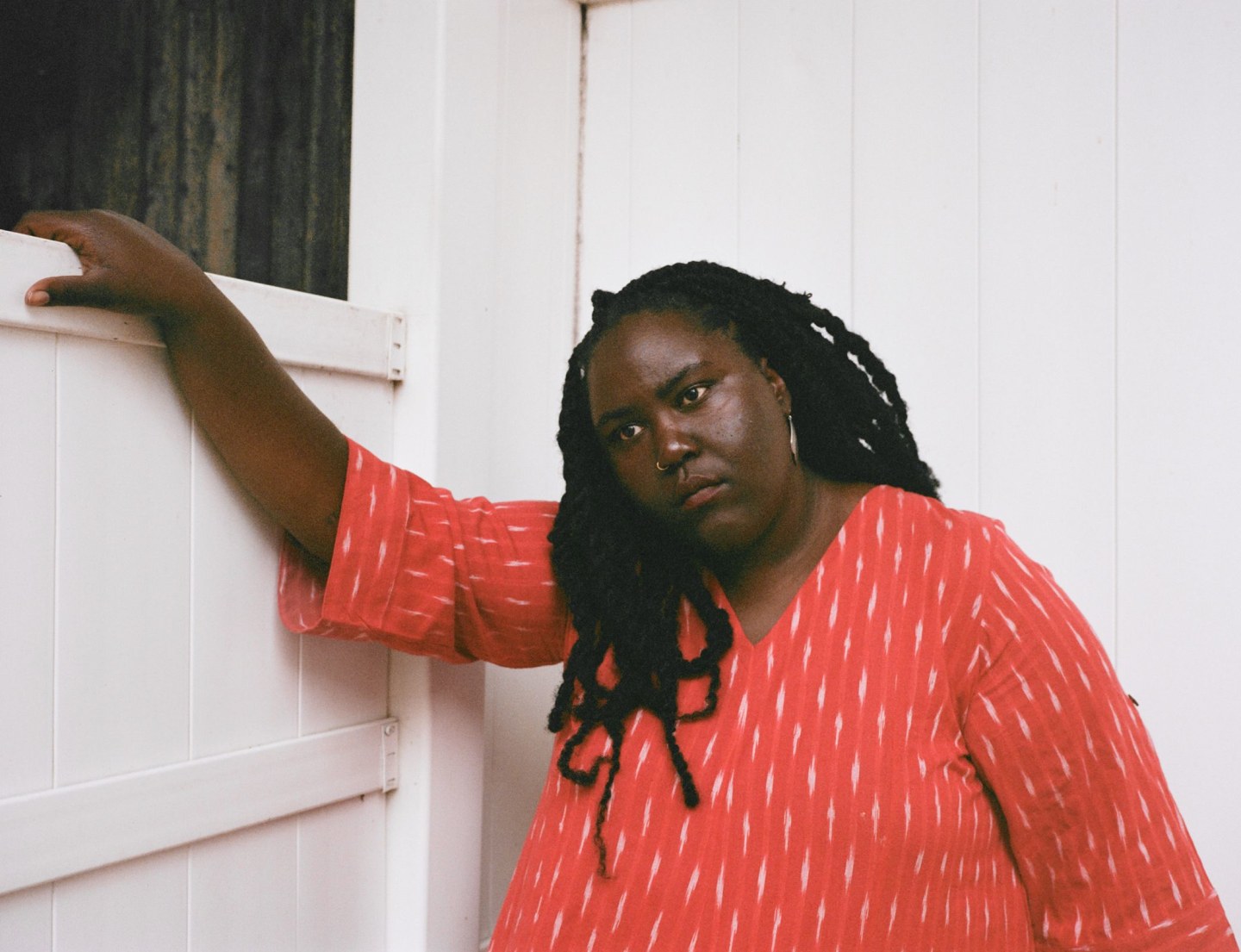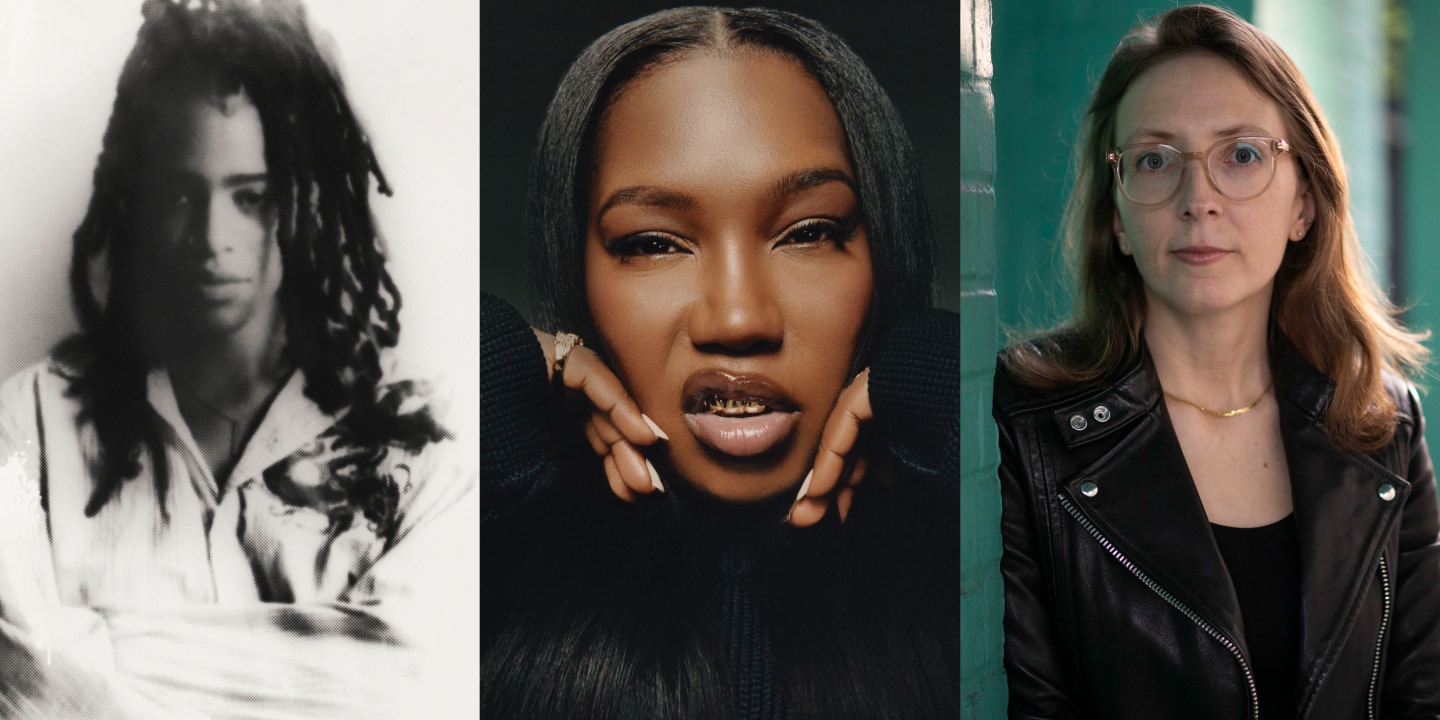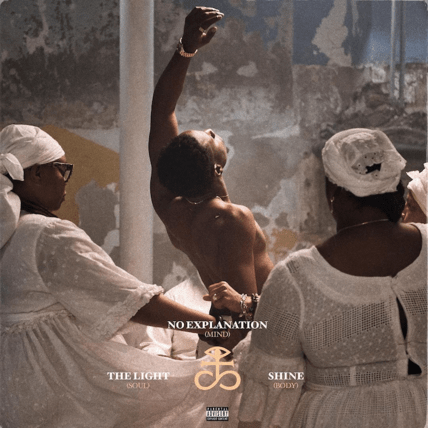Mal Devisa. Photo by POND Creative.
All Deja Carr wants is a house in Amherst. Even just a plot of land would do; she could call her father to help build the residence. What Carr is really looking forward to, though, is a garden full of fruits and vegetables, herbs like the basil she currently boils to clean the floors of her apartment. She has a deep craving, she says over the phone, for a space of her own to create, to spread her arms in a way she couldn’t when she slept in the living room of her Section 8 housing as a child, and to fully become the homebody she is at heart. That vision has helped inspire the 28-year-old Carr to revive her singer-songwriter project Mal Devisa after an extended hiatus with a new anthology Palimpsesa, out now via Topshelf Records.
Around 2016, it was hard to find a music blog that wasn’t rapturously excited about Mal Devisa. Her self-released album Kiid generated a frenzy of well-deserved hype for its ecstatic union of sound: Mal Devisa sang with the ecstatic urgency of a soul diva and rapped with the white-knuckled braggadocio of Biggie, all on the same album that she co-produced and played nearly every instrument on. Labels lined up, tours were arranged; a sense of inevitability surrounded her future career.
Then, everything fell apart. A serious hospitalization forced Mal Devisa to cancel tour dates with Mitski, marking the beginning of health issues that would dissolve huge opportunities and contribute to a personal and professional fallow period. “There’ve been all sorts of crazy diagnoses and diagnoses being taken away,” Mal Devisa tells me. She released her sophomore album Shade and the little Creature in 2018, and removed it shortly after, embarrassed by the music. “I don’t think I had enough confidence as an artist to really stand by what I was making. I was very much in survival mode.”
In 2022, Topshelf Records put out a remaster of Kiid, and approached Mal Devisa about a curated selection of her past work. That collection, Palimpsesa, assembles a raft of previously unreleased material along with songs from both Kiid and Shade and the little Creature. It’s a timely reintroduction to the breadth of Mal Devisa’s talents — and for her, a moment to focus on the foundations of what made her music special. “I just want to make people happy and I want my fans to feel fulfilled in terms of the music,” she says. A few days before Palimpsesa’s release, The FADER spoke with Mal Devisa about changes in the music industry, how she writes and listens to music, and how vital it is to stay curious as she works on brand new music.
The FADER: I wanted to talk a bit about your perceptions of the music industry, because your lyrics have always been understandably wary of it, and so much about being a working musician has changed since Kiid was released.
Mal Devisa: I’m not scared of the music industry because I have the nucleus inside of me that’s a baseline of self-respect. I have the knowledge that people can think of me the way they want to, you know, as a rag doll, as a pushover, as a loose cannon, but I’m not really any of those things.
I know public perception is really important, but I challenge people to really see beyond their first impressions of artists. I had this song called “Fire” where I say something along the lines of “sitting here with this worthlessness,” and in Palimpsesa there’s the line “I wear blackness like blackface.” I know that’s going to cause some scrutiny, but I was also 19 and [practically] the only black kid in this white town.
I was hanging out a lot with Dark World, me and Lucas – he’s one of my favorite rappers – recorded that song together and I was just like, “Oh, it would be funny to say this line.” But I was also really feeling that pressure to perform this version of myself. But if I talk about blackness in this way that’s not acceptable, there’s this whole thing that I hate more which is respectability politics coming into play. And bro, if you can’t handle me at my “Fire,” you can’t handle me at my… whatever song that was.
Tell me a bit about your writing process.
I just write melodies and then the genre will figure itself out. I have this one song on the new, new album that is like a melodic punk song, but the chorus reminds me of R&B. It’s weird because I’ll find different genres within music that is already out. This punk band Sheer Mag, I hear so much Michael Jackson in that singer’s voice. And it makes me think of the song differently. Also, Joanna Sternberg. I hear so much soul in her voice. I hear the roots of the music. So it doesn’t really matter what the end product is like. I know where it comes from.
You said around the release of Kiid that the music was inspired by the Black Lives Matter Movement, and I’m wondering if the music you have coming after Palimpsesa is also inspired by the current political moment.
I really am someone who believes Audre Lorde when she says “the personal is political.” I’m more mindful about creating a space where folks can go to decompress and listen and dance together. And I also think the people who listen to Mal Devisa are not right wing-ass people. So sometimes I do feel like I’m preaching to the choir, but it’s also important to create a lot of solidarity.
I think the new music will have to do a lot with self-discovery and aging and love. I’m in this space of creating knowledge in myself right now so that I can impart that knowledge to other people. And as Mal Devisa expands, I feel like my role in music, music as well as politics, as well as, the various social spaces that I will find myself in, my goals will change.
If you say the same thing over in a way that’s honest, it becomes more of a mantra than mere repetition.
Very true, and repetition is the key to music. In high school, I was taking a music theory class, and my teacher, he started yelling and slapping his arms. He goes, “is this music?” And then the class was like, “no.” Then he did it at the same time as he was tapping his foot, and he goes, “is this music? And then the class was quiet. Music is sound within context, but the only thing he had changed was the addition of repetition. I mean, I love noise music so much. It’s a time to get weird and spooky or celebrate the fact that we can make art out of anything with any means, but repetition is a huge part of music.
I don’t think I had enough confidence as an artist to really stand by what I was making. I was very much in survival mode.
Going back to Sheer Mag and Joanna Sternberg, examining the context of its roots helps us understand music’s effectiveness beyond its genre.
Absolutely, and when I think of artists, I also think about their personal politics. I don’t separate the art and the music. So if she’s coming with this beautiful voice with humility and curiosity, I would think of her differently than if she was like, I’m trying to sound like Michael Jackson.
The variance in your music gives the impression of someone honing an idea through repetition, too, someone working through their ideas in real time with a lot of different tools. Is it difficult sustaining that curiosity?
I don’t think curiosity is something you wanna lose. That’s how you get old. I’ll sit at a keyboard and I’ll look at it and I’ll be like, oh, I wonder what these two notes do. I take a lot of inspiration from Tyler [the Creator] in that I watch his interviews at night and write my to-do list for the next day. And also the artists I love and admire always spark some sort of like, oh, maybe I should write a poem or maybe I should make a voice note. Maybe I should draw a picture. And sometimes there’s nothing to express and I’ll just read. The curiosity will never ever leave. It’s one of the most beautiful things about music.





